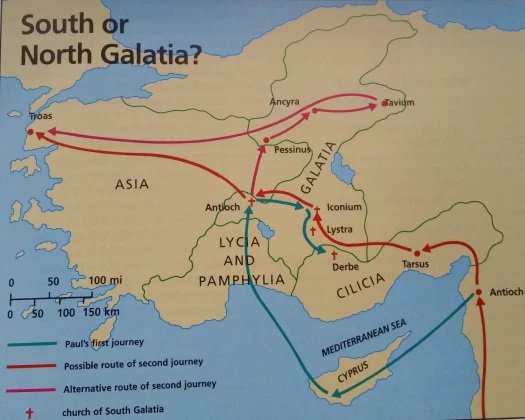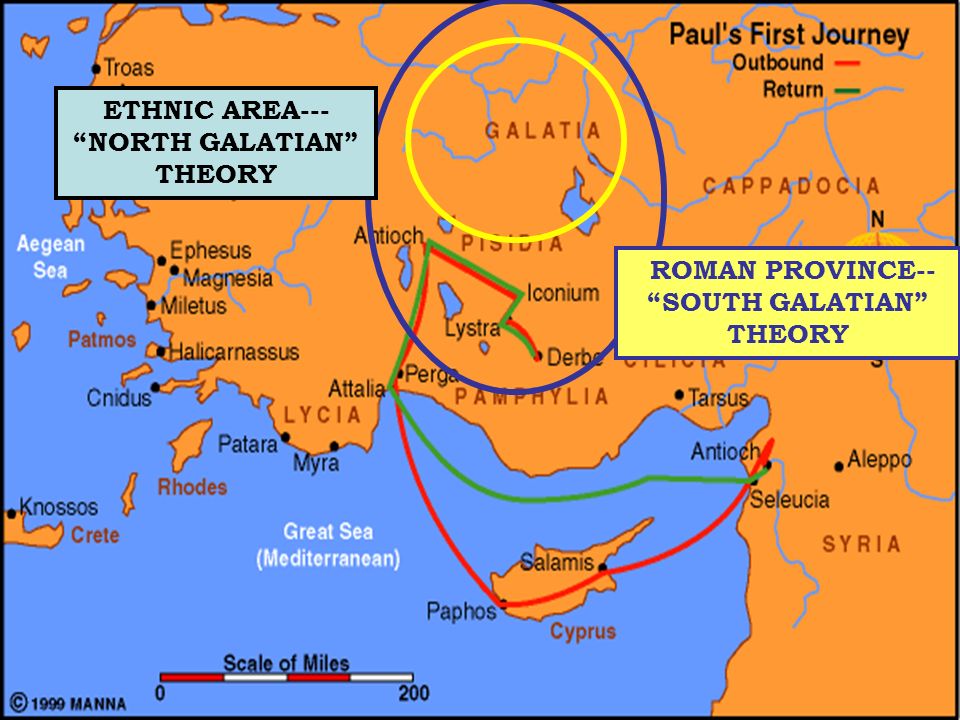| PAUL (Gal 2:1-10) |
LUKE (Acts 15) |
| When? 14 years after Paul's first visit to the Jerusalem apostles (2:1a). |
Some time after Barnabas & Paul had returned to Antioch
from their first missionary journey (Acts 13-14). |
| Paul went with Barnabas, and took Titus along (2:1b). |
Paul, Barnabas, "and some others" from the Church at Antioch (15:2). |
| He went in response to a "revelation" (2:2a). |
They were sent by the Antioch Church after some people from Judea
had caused a disturbance,
preaching the necessity of circumcision (15:1-3). |
| He presents his gospel "privately to those of repute" (2:2b). |
They are welcomed by and report to the whole Jerusalem Church (15:4). |
| Titus, a Greek, was not compelled to be circumcised (2:3). |
[Paul supposedly has Timothy circumcised "on account of the Jews,"
because "all knew that his father was a Greek" - 16:3] |
Paul refused to submit to "false brothers" who wanted to take away
the Gentile converts' freedom and to enslave them (2:4-5). |
Some Pharisees insist on the necessity of circumcision
and observance of the whole Mosaic law (15:5). |
| The Christian leaders in Jerusalem made Paul "add nothing" (2:6). |
The apostles & elders long debate the issues,
with speeches by Peter and James (15:6-18);
to conclude, James decides they should "stop troubling" the Gentile converts,
but also write a letter
telling them to avoid idolatry, fornication,
meat from strangled animals, and blood (15:19-21, 28-29). |
These leaders (James & Cephas & John) recognized that
Paul was sent (by God) to preach to the uncircumcised/Gentiles,
just as Peter was sent to preach to the circumcised/Jews (2:7-9). |
[Acts never mentions this division of labor; on the contrary,
both Peter & Paul preach to both Jews & Gentiles;
see Acts 2; 10–11; 13–14; 15:7; etc.] |
These "reputed pillars" of the Jerusalem community gave
Paul & Barnabas "their right hands in partnership" (2:9b). |
The Jerusalem leaders send two representatives with Paul & Barnabas to Antioch
to deliver their letter, which is gratefully received (15:22-31). |
| The only request: They were "to be mindful of the poor" (2:10). |
[Remembering the poor is not in Acts 15,
but earlier Paul & Barnabas had delivered relief from Antioch to Judean Christians; 11:27-30] |
 Letter Opening (1:1-10)
Letter Opening (1:1-10)
 Location & Date: To Whom and When Was This Letter Written?
Location & Date: To Whom and When Was This Letter Written?